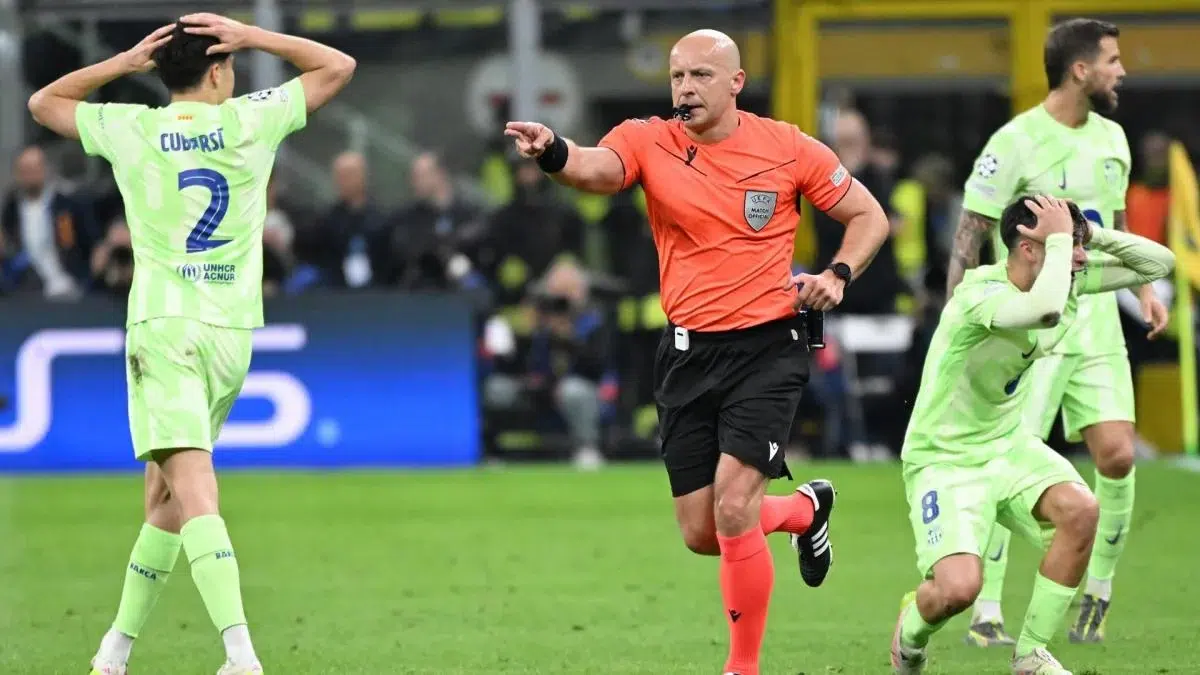
The second leg of the UEFA Champions League semi-final between Inter Milan and FC Barcelona, which ended in a thrilling 4-3 win for Inter (7-6 on aggregate), was overshadowed by controversial refereeing decisions. Polish referee Szymon Marciniak found himself at the center of criticism, especially from Barça’s head coach Hansi Flick.
⚖️ Controversial Decisions Spark Debate
Several key moments during the match raised eyebrows:
- A penalty awarded to Inter following a challenge from Pau Cubarsí on Lautaro Martínez. Initially waved off, it was later given after a VAR check — a decision many deemed soft.
- Two penalty claims by Lamine Yamal were denied: one judged as no contact, the other as a foul outside the box despite close proximity to the penalty area.
- A goal by Francesco Acerbi was disallowed for offside, while a handball incident involving the same player in his own box was ignored by both the referee and VAR, as it was deemed to have first hit his foot before touching his arm.
These moments have led to accusations of inconsistency in the officiating throughout the match.
🗣️ Post-Match Reactions
Barça manager Hansi Flick didn’t hold back in the post-match press conference:
“We were punished by some questionable refereeing decisions. The penalty awarded to Inter and those denied to us clearly influenced the match.”
Spanish media echoed this sentiment, describing the officiating as erratic and crucial in shaping the final outcome.
🧠 Expert Analysis
Former La Liga referee Iturralde González weighed in:
“The penalty given to Inter was debatable, just like the ones denied to Barcelona. The referee lacked consistency in his decisions.”
His comments reflect the growing dissatisfaction with how the match was handled, particularly in such a high-stakes setting.
📌 A Cloud Over a Classic
Despite a brilliant display by 17-year-old Lamine Yamal, Barcelona exited the competition under controversial circumstances. While credit is due to Inter for their resilience and finishing, the role of refereeing in the final result is impossible to ignore.
The debate now shifts to UEFA: should refereeing standards be reviewed in critical matches like this one?
- Tags:
- Football news
